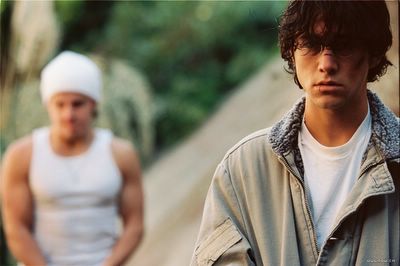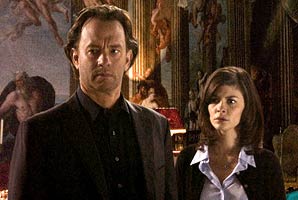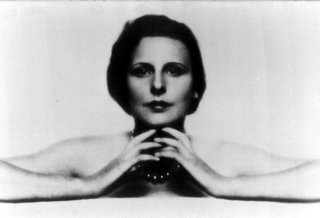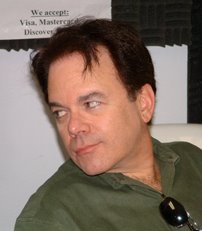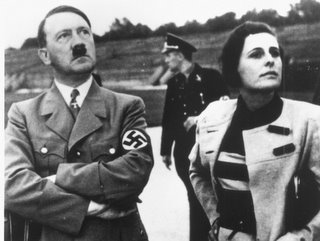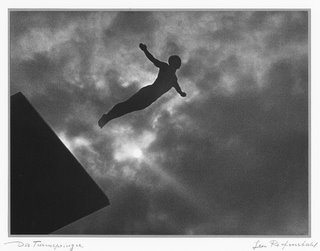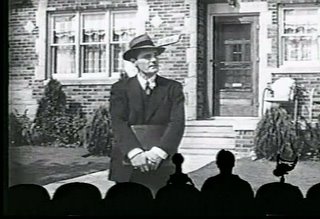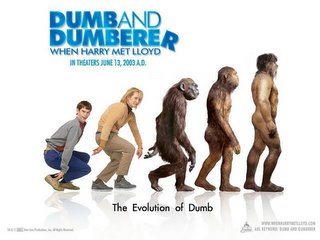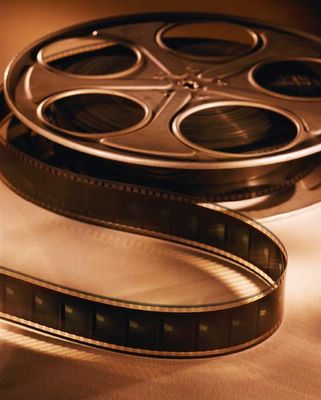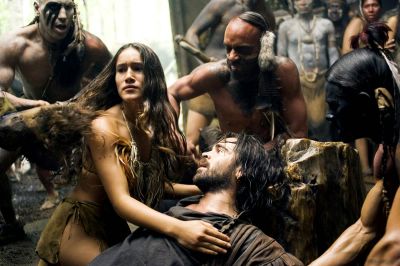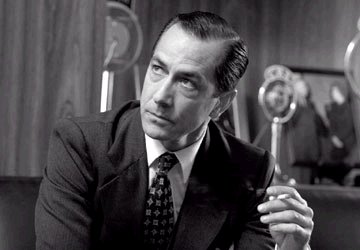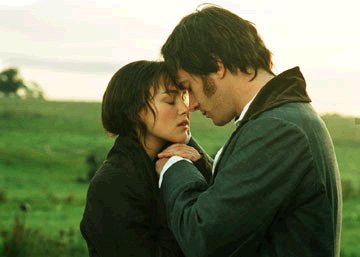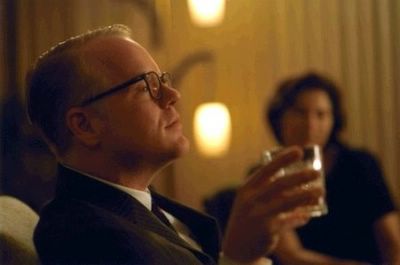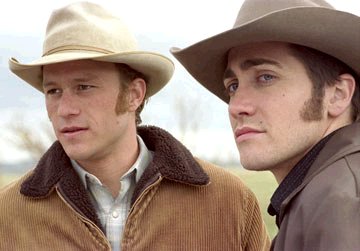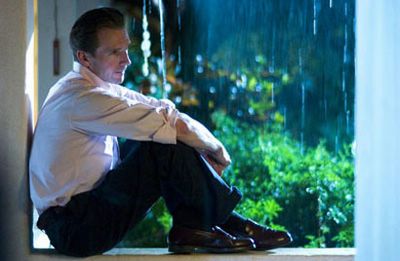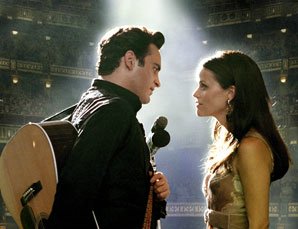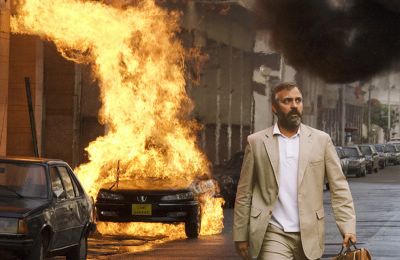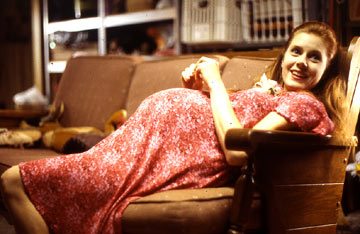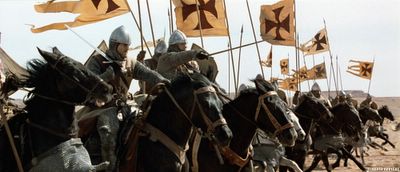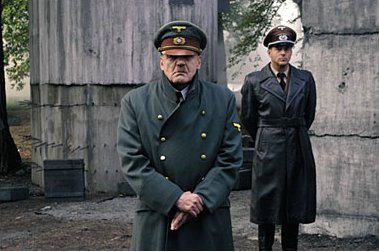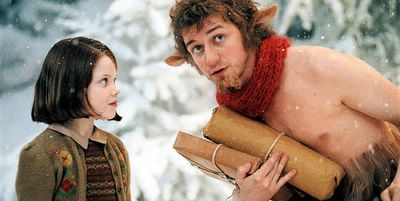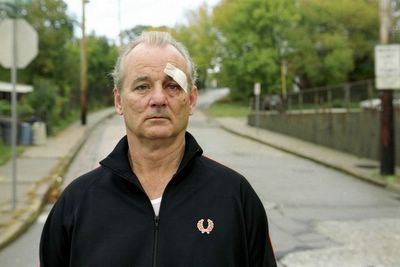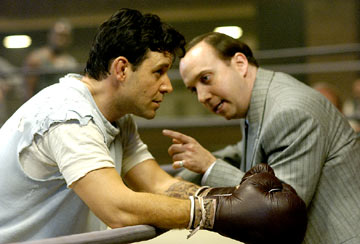I once worked for the Colorado Springs Gazette newspaper as an Entertainment reporter. This is one of those stories... Originally published in the Colorado Springs Gazette
Originally published in the Colorado Springs Gazette
July 27, 2003
by Brandon FibbsSarah Bousquet is the exception.
She plays Juliet in the annual summer Shakespeare production of "Romeo and Juliet," and has been involved in several other Theatreworks productions at the University of Colorado at Colorado Springs.
What makes Bousquet unusual is that she is a student at CU-Springs. On the surface, that's not odd at all. What is more natural than a student performing in a school play?
But Theatreworks is not your ordinary school theater stage. It enlists more professional adult actors than students - a practice that has fostered both pride and resentment among liberal arts students.
"Theatreworks is not for the students," says Staci Henson, a senior at CU-Springs and former Theatreworks stage manager. "If you are a student, you are going to get horrible, tiny roles unless you are part of the 'in crowd.' I really don't think that Theatreworks is fair at all to the students who really want to do theater."
Jay Moore, a junior who auditions for every Theatreworks production available but has never received his big break, agrees. "I've never been happy with it."
Moore is hardly alone. The issue crackles throughout the student body.
Kenny Knapp is a student who has been featured in Theatreworks productions and recently starred in the Star Bar Players' "Picasso at the Lapin Agile" at the Lon Chaney Theatre.
"I know Murray (Ross) is doing quality theatre. I don't doubt that at all. But, why can't he build up what's here? Why can't he make these students into great actors? "
The answer to that goes to the crux of what separates Theatreworks from a typical university theater program.
Director Ross founded Theatreworks in 1975, not as an arm of a theater program but as a outreach tool, a way to put the university on the map.
"At that time the university was a frontier stage post," Ross says. "Nobody knew anything about the University of Colorado at Colorado Springs. There was an acute need to get the campus identified within the community."
To do that, Theatreworks was founded as, first and foremost, a semi-professional theatre. Unlike other state universities, including the University of Colorado's main campus at Boulder, professional actors end up with most of the major roles in theatrical productions.
University officials contend it was never intended to be otherwise.
Modeled after such cooperative institutions as the Yale Repertory Theater and the Yale School of Drama, Theatreworks allows for hands-on training, functioning more often as an apprenticeship program for students.
Drew Martorella, Theatreworks' producing director, says Theatreworks should not be confused with the university's School of Visual and Performing Arts, the intended pipeline for hopeful actors.
"Theatreworks is only one part of theater here at CU-Springs," he says.
Unlike the unversity's visual arts department, Theatreworks must serve a public-relations function, a role that Ross argues it has fulfilled admirably. The accolades his troupe has mustered support his claims. Since its inception, it has presented more than 2,000 performances of 135 plays, including 30 world premieres to more than a half million people. The recipient of the Colorado Governor's Award for Excellence in the Arts, Theatreworks was described by Shakespeare Quarterly as "as good, in absolute terms, as the best in the world."
In a city of few theatrical venues, Theatreworks is widely regarded as the most professional program in the city.
"There is a lot of pressure on Theatreworks to be 'the' professional theatre company in Colorado Springs," says Laura Tesman, assistant professor of theater at CU-Springs.
Stage manager and Theatreworks actor Hossein Forouzanndeh thinks Theatreworks is doing a great job of providing art for a city that doesn't appreciate it, but the CU-Springs student has mixed feelings about its exclusivity.
"When I first got into it, it seemed fair," he says. "But when I looked outside the box, it seemed it was more geared to community and experienced actors. I feel the students could have more participation and say in what goes on."
Student participation has rarely been the group's highest priority, and for good reason, Tesman says.
"Theatreworks is not beholden to the university," says Tesman. "Although it's called UCCS Theatreworks, it is almost completely separate from the university."
"Most people don't understand that," says Henson. "That line is totally invisible on campus."
It's so invisible that even student actors who have been involved with Theatreworks for years don't understand the relationship between the school and the theater group.
MISCONCEPTIONS REMAINConfusion about Theatreworks' role in the university is due primarily to misunderstandings that have never been clarified within the student body.
Although many of those involved in Theatreworks' administration teach at the university, further blurring the lines between the organizations, it is outside their Theatreworks duties. They get paid by the college for their instruction, not their role in Theatreworks.
Union actors who are cast in shows are always paid, but students normally choose from among several options: they can get paid, receive credits or volunteer.
Contrary to popular assumption, no tuition dollars fund Theatreworks productions. Neither Theatreworks nor the theatre department get money from the university for their productions. The money raised is generated from grants, foundations and ticket sales. A recent referendum shifting a small amount of student fees to Theatreworks served only to give the students free access to the new Bon Vivant Theatre at University Hall.
But the student resentment of Theatreworks isn't entirely about where the line is drawn between the university and the theater group, it's about the wall they believe stands between them and theatrical opportunities.
Martorella argues that such walls don't exist and that anyone who wishes to audition gets a fair shot.
"The theater program is by, for and about students exclusively. Theatreworks is by, for and about everybody, including students."
Martorella says his organization could not function without the students.
"Many of the shows we've done involve students either on stage, backstage, costume, wardrobe, electricians, box office, administratively, etc. There are students at every level. We wouldn't be here without them."
The benefits of Theatreworks' more professional approach, Ross says, are for the students as well. "There are very few places in this country where students get to work in such professional circumstances and where they can learn from and work alongside such professional actors. I think it is an absolutely fabulous opportunity for students."
What Ross sees as wonderful opportunities, others see as a creative shut-out.
"There is so much talent available here that Theatreworks doesn't draw on," complains Henson. "But most students don't have any idea until they find it out the hard way, get bitter and don't want to have anything else to do with Theatreworks. Or it's so hard to break into that they just give up and turn to other communities around town."
Ross bristles at the criticism.
"There are plenty of opportunities for students to act apart from Theatreworks productions," he says. "There are director showcases every fall which are exclusively student productions. There are student theater showcases at the end of each semester which feature the work of acting students. There is one student production that is fully funded and fully sponsored by Theatreworks. And we have the opportunity for student-initiated projects."
AWKWARD BALANCING ACTTheatreworks, Tesman says, finds itself in the difficult place of trying to fulfill the needs of a theatrical season and successfully draw in audiences while giving legitimate opportunities to a far less-experienced student population.
"Theatreworks is an awkward balancing act where they have a subscription of people who have been coming to the theatre for 25 years now and expect a certain caliber of performance and certain level of professionalism," Tesman says. "Murray is constantly asking me what students I think might be good in his productions. But one of the downfalls is that they are auditioning against more seasoned actors. It's the nature of this beast we call theater. It's a very difficult world."
Anjelica Bencomo, who, as a student, worked for Theatreworks for four years, recognizes her fellow students' complaints, but offers a different conclusion.
"Theatreworks has a small group of actors that get recycled over and over again. That's not just a Theatreworks thing, it happens in all community-based theaters. If Theatreworks picked shows that catered more to student actors, it would compromise its quality. Ihaven't seen a core group of student actors who can compare to the older actors, and who can play any age group and carry the show."
Bencomo feels the students' energies should not be focused at Theatreworks but at their own theatre program.
"I think that the academic theater needs to step up and do a lot more," she says. "The university has been talking about a drama major for years - it's time they get one."
That major, according to Tesman, is just on the horizon. Having pushed for it ever since she arrived three years ago as the school's first full-time drama department faculty member, she now predicts it will become a reality in the fall of 2004.
Ross says that when he was hired, there was no theatre department at all. He admits there has been progress, but, unfortunately, it has been slow going.
"It's vegetable growth," he says. "It's only in last three years that we have had a legitimate, full-time theatre position here in Laura Tesman. As great as that is, it's not very much. It's certainly not enough to build a department around. But none of this is from a lack of any of our trying. We all desperately want it to happen and it will happen. I very much want it to succeed."
For Bousquet, this year's Juliet, her success with Theatreworks came not because of any special clique, but because of her unremitting persistence.
"It is really important that if a student wants to get involved in a Theatreworks show, they need to get involved as much as possible with all the other aspects. You can't just jump into it expecting that they'll cast you, if that's all you are looking for."
